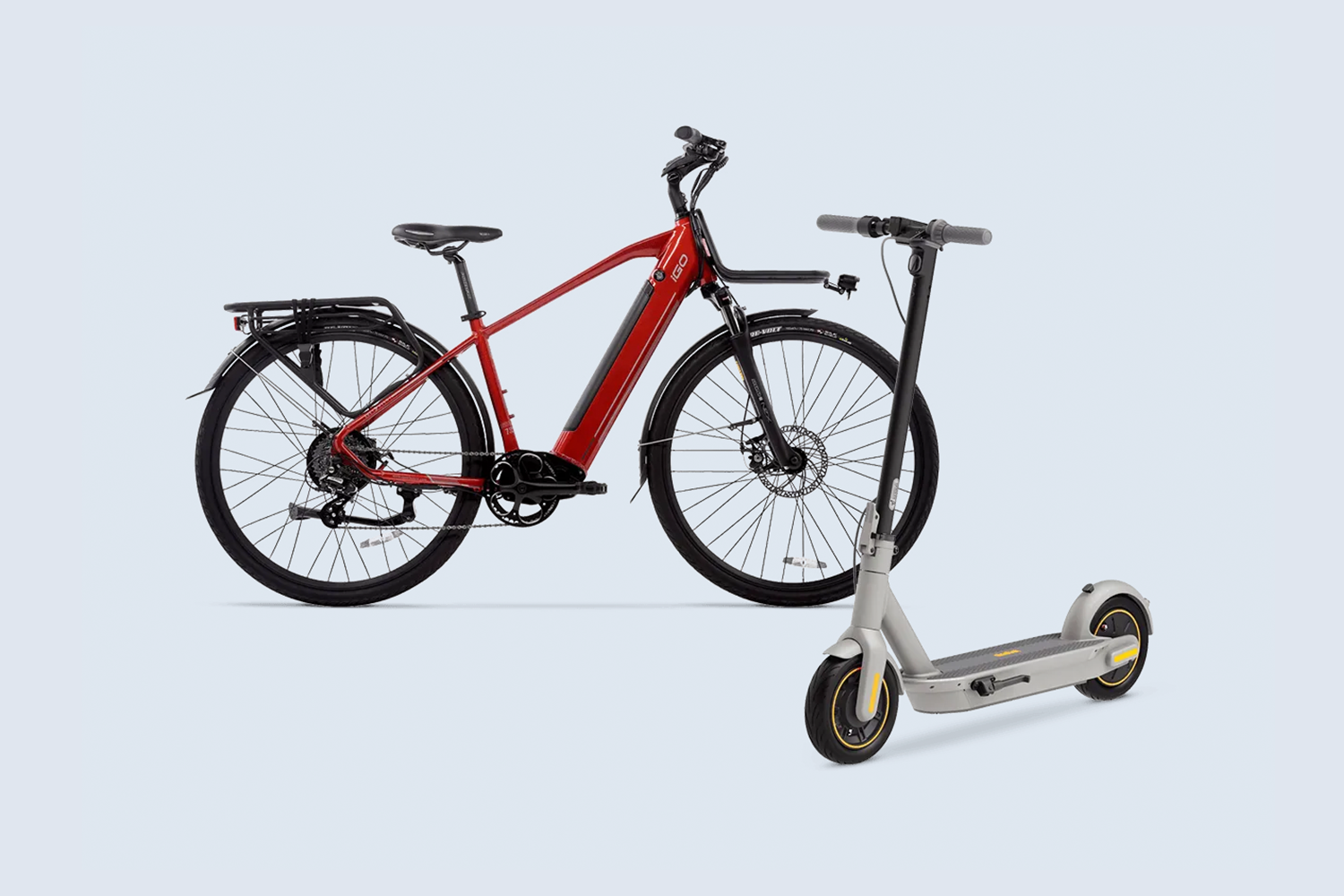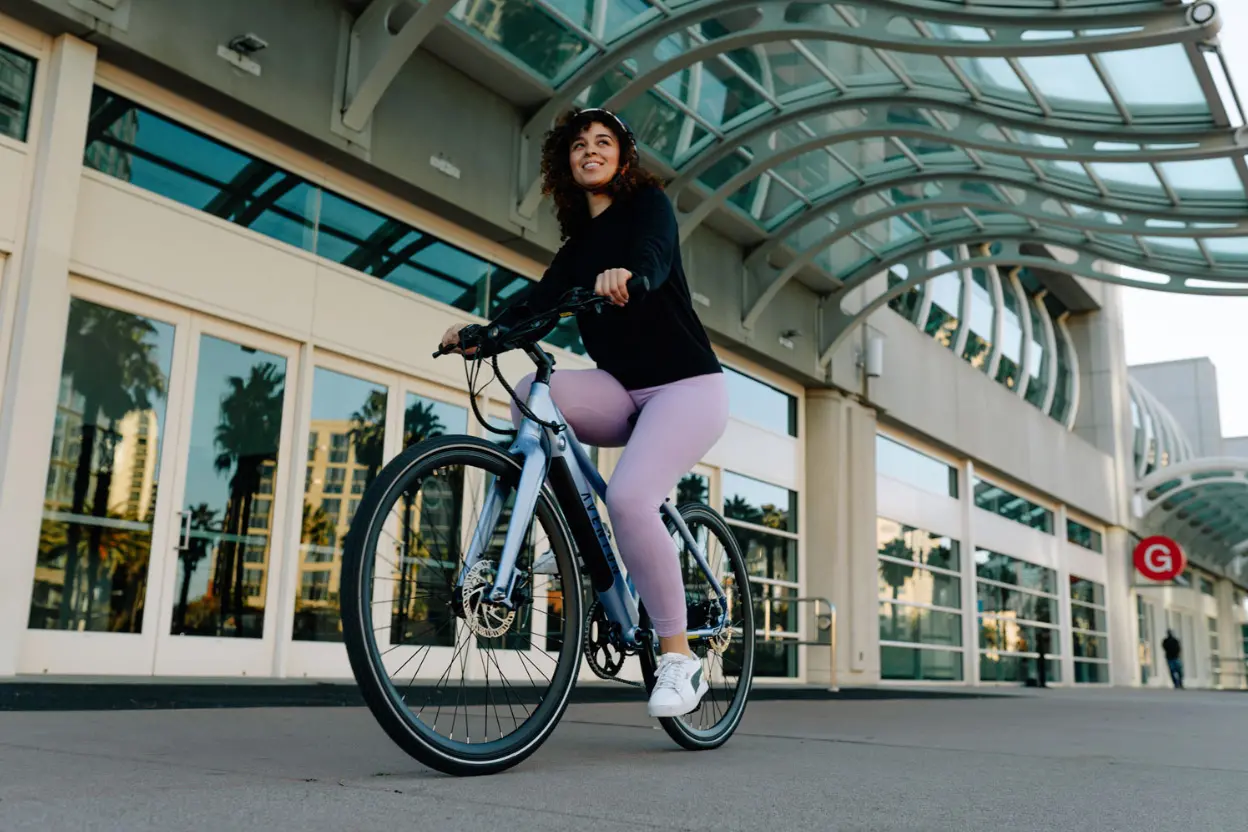
Are you looking for an efficient, eco-friendly, and cost-effective way to get around campus? Ebikes and escooters might be for you. These electric alternatives are revolutionizing mobility, not just in urban environments but notably on college and university campuses. Whether it’s getting to an early morning lecture or visiting friends in another residence hall, you may find that ebikes and escooters offer a convenient and enjoyable way to navigate your surroundings.
Understanding ebikes and escooters
Before delving deeper into the subject, let’s take a look at what ebikes and escooters are. An “ebike”, short for electric bike, is a bicycle equipped with an integrated electric motor. This motor can be used for propulsion, either supplementing or replacing traditional pedaling. Similarly, an “escooter” or electric scooter is a powered stand-up scooter using an electric motor. Both ebikes and escooters come with rechargeable batteries, allowing you to easily power up your rides between trips.
A closer look at ebikes

There is a diverse range of ebikes and escooters available, catering to different needs and preferences. Ebikes, for instance, are commonly categorized into “city electric bikes” and “folding electric bicycles”. City ebikes are designed with urban environments in mind; they offer a comfortable riding experience, robust frames, and often come with features like integrated lights and luggage racks for those hefty textbooks.
On the other hand, folding ebikes, as the name suggests, can be folded down to a compact size, making them an excellent choice for students with limited storage space. These bikes can be easily carried onto public transport or stowed away under a desk during lectures. Not only do folding electric bicycles offer great flexibility, but they also feature the same electric assistance found in regular ebikes, providing an effortless ride even when the campus is dotted with steep hills.
Both city ebikes and folding ebikes present unique benefits and continue to evolve with advancements in battery technology, motor efficiency, and design. They represent a shift towards a more sustainable and convenient form of transport, aligning perfectly with the needs of today’s college and university students.

A closer look at escooters
The other major player in the electric revolution on campus is the escooter, or electric scooter. These devices offer a unique blend of portability, convenience, and speed. Compact yet powerful, escooters are becoming increasingly popular among students who value the ability to zip around campus and nearby city streets with minimal effort.
One of the main appeals of electric scooters is their simplicity. Most escooters are controlled with a hand-operated accelerator and brake, making them straightforward and intuitive to use. Additionally, many electric scooters are foldable, allowing you to easily carry them into lecture halls or store them in small dorm rooms. This level of convenience, combined with their electric efficiency and lower cost compared to cars, makes escooters a perfect fit for the modern student’s lifestyle.
Cost-effectiveness of ebikes and escooters
When considering the benefits of ebikes and escooters, their cost-effectiveness stands out. Owning an ebike or escooter can be far more affordable than maintaining a car—especially when you factor in costs like fuel, insurance, and parking. Moreover, electric bikes and electric scooters have lower energy consumption compared to motor vehicles, so they’re more economical in the long run.
As a student particularly, city electric bikes and folding electric bicycles can represent an efficient use of your resources. The initial investment in an ebike can be quickly offset by the savings in travel time, public transit fares, and car-related costs. The same logic applies to electric scooters, which are often cheaper to purchase and maintain than their bike counterparts.
Environmental impact of ebikes and escooters
Along with their economic benefits, ebikes and escooters also offer substantial environmental advantages. Both electric bikes and electric scooters emit far fewer greenhouse gases than traditional cars, making them a more environmentally friendly option for campus transportation.
Folding ebikes and e-scooters, in particular, shine in this aspect. Not only do they use less energy due to their lightweight design, but their portability also encourages multimodal commuting. For instance, you could use your folding electric bicycle for part of your journey and public transit for another part, reducing your overall carbon footprint.
Overall, ebikes and escooters are not only convenient and cost-effective modes of transportation, but they also contribute significantly towards the sustainability efforts of college campuses and the wider community.
The growing trend of ebikes and escooters on college campuses

The surge in popularity of ebikes and escooters among college students is undeniable. As more students are asking “how to save money with an ebike” or “how to choose a city ebike”, it’s clear that these modes of transportation are becoming a significant trend. Increasingly, students are turning to reviews of top-rated city ebikes and folding electric bicycles to decide which model best suits their needs. Additionally, a growing number of students are opting for e-scooters for campus commuting, due to their low cost, compactness, and fun-to-ride nature.
Why should you choose an ebike or an escooter?
There are several reasons why you might want to consider getting an ebike or an escooter. First, the cost-effectiveness of these electric vehicles compared to cars or public transport makes them a practical choice for students on a budget. Furthermore, ebikes and escooters can often be a faster mode of transport in congested areas, reducing commute times considerably.
Another critical factor is the environmental impact. More and more students are cognizant of the environmental benefits of using electric scooters and ebikes over traditional modes of transport. They see the value in reducing their carbon footprint and contributing to the sustainability of their campuses.
Lastly, the sheer convenience of these vehicles—particularly folding ebikes and escooters—cannot be overstated. Being able to store your vehicle under your bed or carry it onto public transit are tangible benefits that can’t be matched by traditional bikes or cars.
Can you ride an ebike or an escooter on campus?
In response to the growing trend of ebikes and escooters, campuses are taking active measures to accommodate these vehicles. From setting up dedicated parking zones and charging stations for electric bikes and scooters to offering workshops on riding safely, campuses are going the extra mile to support this eco-friendly transition.
Additionally, some campuses have even introduced programs that allow students to rent ebikes and escooters, thus making these vehicles more accessible to everyone.
Find the right ebike or escooter for you

The growing trend of ebikes and escooters on college campuses is an undeniable testament to their benefits. From their cost-effectiveness to their environmental advantages, these electric modes of transport are revolutionizing the way students get around. The convenience of city electric bikes, the compactness of folding ebikes, and the agility of escooters all combine to provide a transport solution that is perfectly aligned with the modern student’s lifestyle. As campuses continue to adapt and provide more resources for these vehicles, it’s clear that this trend is here to stay.
If you’re a student looking for an efficient, affordable, and eco-friendly way to navigate your campus, now is the perfect time to consider an ebike or escooter. Whether you’re leaning towards an ebike or an escooter, there are plenty of resources to help you pick the right one. Embrace the electric revolution, and make your campus commute a breeze!
This article was drafted using AI technology and then reviewed, fact-checked, and revised by a member of our editorial team.




